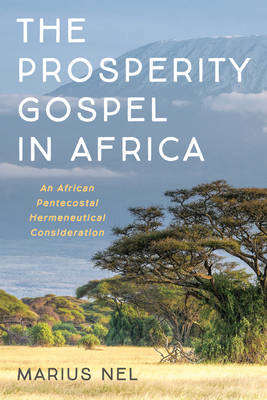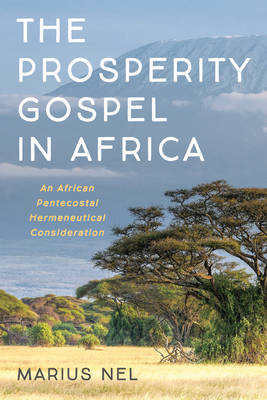
- Afhalen na 1 uur in een winkel met voorraad
- Gratis thuislevering in België vanaf € 30
- Ruim aanbod met 7 miljoen producten
- Afhalen na 1 uur in een winkel met voorraad
- Gratis thuislevering in België vanaf € 30
- Ruim aanbod met 7 miljoen producten
Zoeken
The Prosperity Gospel in Africa
An African Pentecostal Hermeneutical Consideration
Marius Nel
Hardcover | Engels
€ 69,45
+ 138 punten
Uitvoering
Omschrijving
Africans' prevailing interest in the prosperity gospel is not only connected to the influence of American prosperity teachers reaching a worldwide audience through their imaginative use of the media, but is also related to the African worldview and African traditional religion, and its lasting influence on contemporary Africans and the way they think about prosperity, as well as their interest in prosperity in post-colonial Africa. The research from a classical Pentecostal perspective about the impact of the prosperity message on Africa is necessary, timely, and relevant because of its influence in the African Pentecostal movement and its potential to harm the faith of believers, leading to the potential disillusionment of Christian believers who put their trust (and money) in formulas and recipes that seemingly only work for others, especially the prosperity leaders who lead by example with incredulous riches and wealth.
Specificaties
Betrokkenen
- Auteur(s):
- Uitgeverij:
Inhoud
- Aantal bladzijden:
- 318
- Taal:
- Engels
Eigenschappen
- Productcode (EAN):
- 9781725266636
- Verschijningsdatum:
- 15/06/2020
- Uitvoering:
- Hardcover
- Formaat:
- Genaaid
- Afmetingen:
- 152 mm x 229 mm
- Gewicht:
- 594 g

Alleen bij Standaard Boekhandel
+ 138 punten op je klantenkaart van Standaard Boekhandel
Beoordelingen
We publiceren alleen reviews die voldoen aan de voorwaarden voor reviews. Bekijk onze voorwaarden voor reviews.








